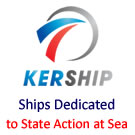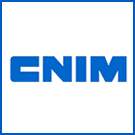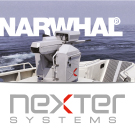 The unit will be approx. 200 meters long with a maximum speed of 25 knots. It will be equipped with a combined diesel and gas turbine plant (CODOG) and will be able to accommodate on board over 1,000 people, of whom more than 700 military or civilian transported people. Displacement should be just above 20,000 tons. |
|||
In addition to building the vessels at its shipyards,
Fincantieri will provide support over the lifecycle of the vessels in
the first ten years, through the supply of logistic services (training
courses, spare parts, technical documentation) during the construction
of the vessels and of ISS, In-Service Support, (maintenance services),
carried out during post-delivery operations, as well as components and
naval machinery produced by the Marine Systems and Components Business
Unit, such as shaft lines, wheelhouse, maneuvering propellers, fin stabilizers
and other handling systems.
Finmeccanica, through Selex ES, will act as prime contractor for the new unit’s entire combat system. The system will support landing craft, provide vessel self-defence and coordinate and control operations in concert with other naval and ground forces. Selex ES will also provide all the sensor systems including the X band, four-fixed-face, multifunctional scanned-array radar system and also the latest generation integrated communications. Finmeccanica-Selex ES will deliver and integrate all systems, including those of OTO Melara, WASS, and Elettronica, and is also responsible for the provision of support throughout the first decade of use including Integrated Logistic Support (ILS) and In-Service Support (ISS). Fincantieri’s Chief Executive Officer, Giuseppe Bono, commented: “The announcement of this additional unit completes the first part of the renewal of our Navy’s Fleet, one of the world’s most significant defence programmes of the last years. We are extremely satisfied and excited to be leaders of such an important project, both technically and industrially. It confirms that we are a reference producer worldwide as well in the naval segment, either for the domestic and foreign markets. Fincantieri all will work at this programme with the highest commitment in order to realize on time extremely high quality products”. Finmeccanica’s Chief Executive Officer and General Manager, Mauro Moretti, said: “The contract award represents a new and significant contribution by Finmeccanica and Fincantieri to the Italian Navy's important fleet renewal programme. All of the systems designed and developed for the new dual-use LHD naval unit are based on the most advanced technology, boosting the efficiency of solutions proposed by Finmeccanicaandstrengthening its position in the naval sector. The group will continue to invest in this sector, with the goal of increasing the value of its products and solutions able to achieve significant success, also in international markets”. |
|||
 The LHD's main mission is the transport of people, vehicles and loads of different kinds and in their transfer on land in port areas through on board systems and in not equipped areas with various kinds of vessels (such as LCAC as seen here, two of which may fit inside the well deck). |
|||
LHD - Landing Helicopter Dock characteristics
The unit will be approx. 200 meters long with a maximum speed of 25 knots. It will be equipped with a combined diesel and gas turbine plant (CODOG) and will be able to accommodate on board over 1,000 people, of whom more than 700 military or civilian transported people. The LHD's main mission is the transport of people, vehicles and loads of different kinds and in their transfer on land in port areas through on board systems and in not equipped areas with various kinds of vessels (such as the small LCM landing craft units with a load capacity up to 60 tons, four of which can be admitted, launched, and recovered through a flooded basin, located on the stern of the vessel). The LHD’s military profile use provides transport and landing, in equipped and non-equipped areas, of troupes, military vehicles, logistic equipment, using the provided features and means of transfer. The civil profile use provides: • healthcare and hospital support • transfer and landing of people and wheeled or crawled means of transport in equipped and non-equipped areas • supply of drinking water to land through onboard desalination plants or storages • supply of electricity to land with 2000 kw of power and its distribution through containerized conversion and distribution units • possibility of accommodating specialized staff on board or hosting up to 700 civilian personnel, plus the same number in containerized residential units • rescue operations base through helicopters and boar staffing vessels Equipped with wide embarkment areas of about 4500mq withindock-garage and hangar-garage and a continuous open deck, able to receive wheeled vehicles of various kinds, containers and helicopters, the unit can perform several military and civil missions. The different areas of cargo securing are accessible through stern and side ramps, and cargo handling will be managed by internal ramps and elevators. On board there will be a fully equipped hospital, complete with operating rooms, radiology and analysis rooms, a dentist’s office, and a hospital rooms capable of hosting 28 seriously injured patients (further admissions are possible through duly equipped container modules). |
|||
Fincantieri & Finmeccanica to Build 1 Multipurpose Amphibious Unit LHD for the Italian Navy
- Posted On





 Scale
model of the future LHD of the Italian Navy. This scale model was shown
on Fincantieri stand during Euronaval.
Scale
model of the future LHD of the Italian Navy. This scale model was shown
on Fincantieri stand during Euronaval.




